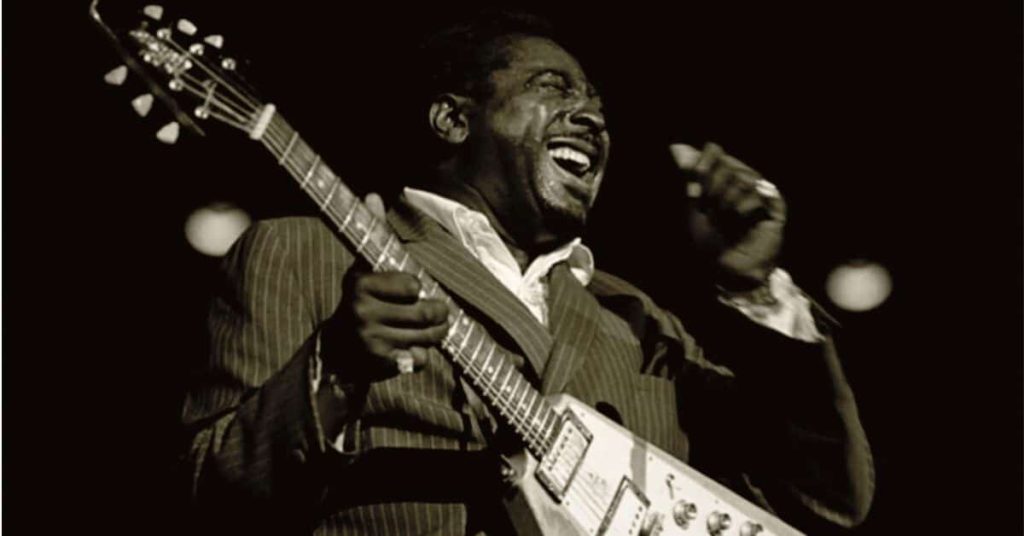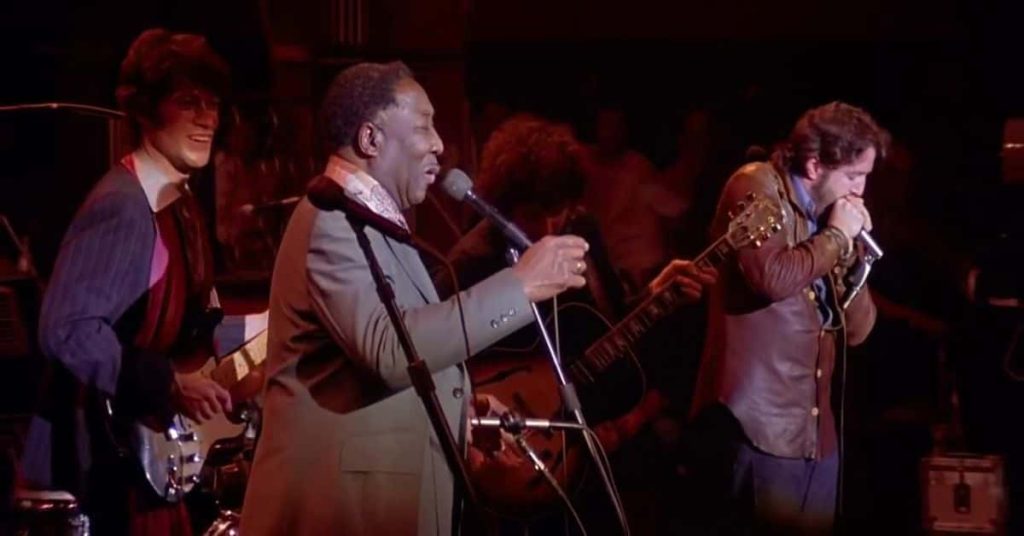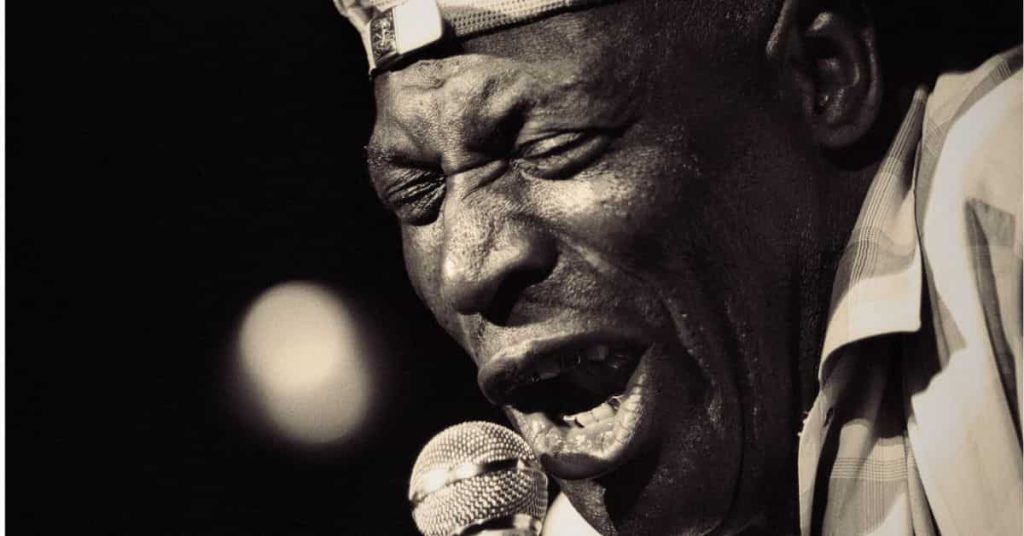Albert King – Born Under A Bad Sign – Live, 1981.
Since its release in 1967, this song by Albert King has been a timeless blues song that has left an indelible mark in the world of music. The song showcases the prowess of Albert King as a blues artist. It has a raw, emotional guitar work, soulful vocals, and good lyrics.
Setting the Stage
At the beginning of this track, King immediately took center stage with his guitar. His searing licks and bends revealed a world of blues that is both powerful and melancholic to his listeners. The music “Born Under A Bad Sign” is special because of the distinctive manner in which Albert King played his music. This includes his unique left-handed guitar playing style which he does on a right-handed guitar that is flipped upside down. This unconventional style of playing the guitar gave him a distinct sound that became his trademark.
Born in 1923 in Indianola, Mississippi, Albert King’s roots are deep in the blues tradition. His upbringing in the heart of the Mississippi Delta exposed him to the richness of the genre, and his early influences included legends like Robert Johnson and B.B. King. This background played a pivotal role in shaping his unique approach to the blues as he combined traditional Delta blues with his innovative guitar techniques.
The Title Track: Born Under A Bad Sign
“Born Under A Bad Sign” is not just the title of the track but also its signature song. The gruff vocals of Albert convey a sense of hardship and struggle which perfectly complements the lyrics that speak of bad luck and adversity. The guitar work in this track is nothing short of extraordinary. King’s mastery of bending notes and creating emotive solos shines through, thus making this song a blues classic. The opening lines, “Born under a bad sign, I’ve been down since I began to crawl,” resonate deeply as they paint a vivid picture of the hardships of life.
The lyrics of the song capture the essence of the blues where suffering is laid bare and shared with the listener. It’s a testament to King’s ability to tell stories through music. The repetitive riff that underpins the track creates a hypnotic effect as it draws the listener into the heart of the emotional core of the song. “Born Under A Bad Sign” is not just a song; it’s a blues sermon that speaks to the human experience.
Blues Royalty: Collaborating with Booker T. Jones
“Born Under A Bad Sign” benefits greatly from the collaboration between Albert King and the legendary Booker T. Jones, who produced the track and played organ on several other tracks. The contribution made by Jones adds a layer of depth and richness to the music by enhancing the overall sound and elevating his performance to new heights. Their partnership is a prime example of how two musical giants can collaborate to create something extraordinary.
The organ work of Booker T. Jones on tracks such as “Crosscut Saw” and “Personal Manager” adds a sorrowful feeling to the music. It’s as though the blistering guitar of King and the organ of Jones are engaged in a musical conversation as each instrument responds to the other’s cues. Jones’s production also brings a polished quality to the album without sacrificing its raw, bluesy nature. This collaboration produces a magic that can happen when great musicians come together to create something unique.
Blues Guitar Mastery: King’s Unique Style
Albert King’s guitar style is often imitated but never duplicated. His unorthodox technique involves bending the guitar strings with his fingers rather than using a traditional slide. This gives his playing a distinctive and raw quality. Each note he plays is laden with emotions, and his ability to make his guitar weep and wail is unparalleled. King’s guitar solos on tracks like “The Hunter” and “Oh, Pretty Woman” showcase his mastery of the instrument and leave an indelible mark on the soul of any listener.
King’s left-handed, upside-down guitar playing added an element of unpredictability to the track. His thumb-heavy approach to picking the strings allowed him to create a deep, resonant tone that was unique to him. This technique combined with his ferocious bending of notes, gave his guitar a voice that could express a wide range of emotions such as the joyous and the mournful. It’s no wonder that so many guitarists have looked to Albert King as a source of inspiration and a benchmark of excellence in playing the blues guitar.
Influence on Future Generations
“Born Under A Bad Sign” not only solidified Albert King’s status as a blues legend but also had a profound influence on future generations of musicians. His guitar playing, vocal delivery, and songwriting style became a blueprint for countless blues and rock artists who followed in his footsteps. The likes of Stevie Ray Vaughan, Eric Clapton, and Jimi Hendrix have all acknowledged King’s impact on their music.
Stevie Ray Vaughan, in particular, was a devoted admirer of Albert King. Vaughan’s amazing guitar work, reminiscent of King’s fiery style, was heavily influenced by the blues legend. This influence is most evident in Vaughan’s renditions of King’s songs, such as “Crossfire” and “Pride and Joy,” where he pays homage to his hero. King’s legacy lives on in the music of those he directly inspired. It is also alive and well in the broader world of blues and rock, where his innovative guitar techniques continue to shape the genre.
The Lasting Legacy
More than five decades after its release, “Born Under A Bad Sign” continues to be celebrated and revered. The enduring popularity of the song goes to show that Albert King’s music is timeless. This track has something to offer both the die-hard blues enthusiast and the casual listener. The musical prowess, emotional depth, and storytelling prowess are qualities that people from all walks of life will always love.
The enduring legacy of this track can also be attributed to its ability to bridge generational and cultural gaps. The influence of this song on subsequent generations of musicians solidifies its place as a cornerstone of American music. Younger audiences who may not have experienced the blues firsthand are drawn to the authenticity and emotional nature of the track.






